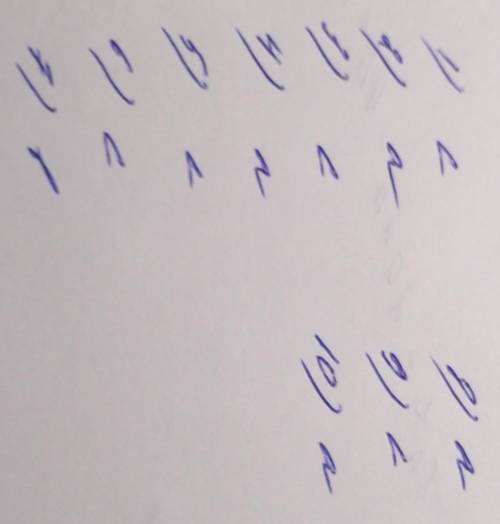, умоляю. ЛЕКСИКОЛОГИЯ 7. Identify the semantic change(s) underlying the following word histories as
A. metaphor.. B. metonymy.. C. restriction or specialization..
D. generalization.. E. elevation.. F. degradation / pejoration
Mind that more than one semantic process can be involved.
1. Arena: Should not be applied strictly to any open space, playing area or meeting-place. Arena is Latin ‘sand’, from the days when the Coliseum in Rome was strewn with sand to absorb the blood spilt in combats between the gladiators, or the Christians and the lions. (Radford)
2. Blackguard: Has come to a queer corruption. There was nothing villainous about the original “black-guards”. They were humble servants of the household who rode with the pots and pans, to guard them, during the passage of a wealthy household from country house to town house, or vice versa. (Radford)
3. Budget: Dr. Brewer puts forward the statement that the use of the term budget for the financial statement of the Chancellor of the Exchequer arose from the custom of bringing to the House of Commons the papers pertaining to these matters in a leather bag, or, in the French, a bougette. The French word for ‘bag’ is, in any case, bouge. The simple fact is that the Budget in these early days was literally a sack full of money, the various sums appropriated to special purposes being sorted into little pouches. And bougette is the diminutive of the French word bouge, and means a little bag, or pouch. (Radford)
4. Cash: Was originally the old French word casse, a case or box in which money was kept. (Radford)
5. Economy: Although the word is now used mostly for national or international politics, it belonged primarily to the house, being derived from the Greek oikos ‘a house’ and nomos ‘a law’. Even now, the principal “economy” in the minds of the ordinary man and woman is the true one—the relation to home expenditure and income. (Radford)
6. Endorse: “I endorse that” means “I accept that”, or, properly, “I back that”. It is derived from the Latin in-dorsum ‘on the back’. (Radford)
7. Etiquette: It is a French word meaning ‘label’. On ceremonial and other important occasions a ticket of instructions was issued to visitors detailing what they should do. The ticket, or label was their etiquette. To-day, it is a code (mostly unspoken and unwritten) of rules governing behaviour and decorum. (Radford)
8. Idiot: The word is from the Greek idios ‘private’, ‘one's own’, the Greek idiotes signifying a man in private life, as distinguished from one holding an official position. The assumption was that the latter would be of higher education and intellect. To-day it has come to mean one who is weak in mind or deficient in common sense. (Radford)
9. Jail-bird: For certain offences in olden days women were imprisoned in a large iron cage. That they were, therefore, jail-birds, was a natural corollary. (Radford)
10. Limousine: This name existed many years before the motor car body with that name was thought of. Limousine is a French word signifying a cloak. The idea was a “cloaked” car, cars having previously been open. (Radford)
11. Money: The name for our coinage is derived from the Latin moneta. The word is more plainly recognizable in our word used to describe financial transactions — monetary. (Radford)
12. Omnibus From the Latin omnibus ‘for all’. (Radford)
13. Opera: Means, in its original Latin, ‘labours, works’. It is the plural of opus ‘a work’. (Radford)
14. Orgy: The name for drunken or riotous revels comes from the Greek orgia, the secret festivals, held always at night, in honour of Bacchus, the God of wine. (Radford)
15. Paradise: The original “paradise” was the tree-studded parks around the palaces of the Persian kings, being derived from the Old Persian pairidaeza (pairi ‘around’ plus diz ‘to mould or form’). The Greeks seized the word and termed it paradeisos. It was first used in this sense by Xenophon and then by Septuagint for Garden of Eden. (Radford)
16. Queue: French word, meaning ‘tail’. (Radford)
17. Sinister: Foreboding, of ill omen. The word is from the Latin sinister ‘left’. From the ancient days the left side has been regarded with superstitious fears. Nothing good could ever come from the left. Thus, left became the sinister side. (Radford)
18. Soldier: Was so called from the Latin solidus ‘a piece of money’. In other words, the Roman soldier was a hireling, or mercenary, engaged with money to fight. (Radford)
19. Steward: The name for a caretaker is derived from the Saxon stigweard, from stigo ‘a sty’ and weard ‘a ward’. It dates back to the days when most of England was forest, and the chief wealth of the Saxon landowner was pigs. The pigs were driven home from the forest feeding grounds at night and penned in their sties, a man being employed to keep watch and ward over them. He was the stigweard — steward. (Radford)
287
402
Ответы на вопрос:
Реши свою проблему, спроси otvet5GPT
-
Быстро
Мгновенный ответ на твой вопрос -
Точно
Бот обладает знаниями во всех сферах -
Бесплатно
Задай вопрос и получи ответ бесплатно

Популярно: Другие предметы
-
В 2009 г. при производстве продукции использовалось сырье более...
 mariakyzminova13.12.2022 22:02
mariakyzminova13.12.2022 22:02 -
Скорость вылета спермы из мужского полового органа...
 Misis1115.06.2020 19:13
Misis1115.06.2020 19:13 -
Вкажіть ВСІ твердження проявів дискримінації ВІЛ-інфікованих...
 базлайдер08.02.2023 20:46
базлайдер08.02.2023 20:46 -
Кратко обрисовать факторы и закономерности -художественных процессов...
 AlekseyLascot11.10.2020 09:29
AlekseyLascot11.10.2020 09:29 -
Таблица: 1 колонка - скопление (шаровые, рассеянные, звездные...
 agentboy21.01.2023 05:25
agentboy21.01.2023 05:25 -
Часть а просто варианты ответ, часть в краткие ответы на вопросы,...
 камка728.03.2022 18:41
камка728.03.2022 18:41 -
4. какова линейная скорость конца минутной стрелки часов на...
 07902329630.04.2021 01:43
07902329630.04.2021 01:43 -
:) there isn’t/ there aren’t 1. sofa in the room 2. armchairs...
 Андрей1238524.03.2023 03:53
Андрей1238524.03.2023 03:53 -
Р: aabb * aabb g: ab * ab,ab,ab,ab f: найдите f...
 oksanavolkova311.05.2022 09:47
oksanavolkova311.05.2022 09:47 -
Поместится ли число -150 в знаковой форме в 8-разрядную ячейку...
 дада21106.01.2022 02:24
дада21106.01.2022 02:24

Есть вопросы?
-
Как otvet5GPT работает?
otvet5GPT использует большую языковую модель вместе с базой данных GPT для обеспечения высококачественных образовательных результатов. otvet5GPT действует как доступный академический ресурс вне класса. -
Сколько это стоит?
Проект находиться на стадии тестирования и все услуги бесплатны. -
Могу ли я использовать otvet5GPT в школе?
Конечно! Нейросеть может помочь вам делать конспекты лекций, придумывать идеи в классе и многое другое! -
В чем отличия от ChatGPT?
otvet5GPT черпает академические источники из собственной базы данных и предназначен специально для студентов. otvet5GPT также адаптируется к вашему стилю письма, предоставляя ряд образовательных инструментов, предназначенных для улучшения обучения.

